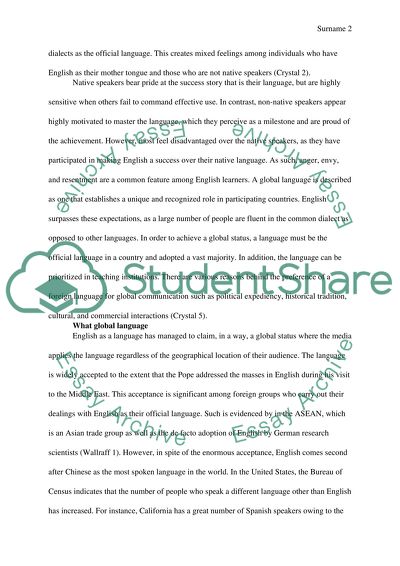Cite this document
(“English as a global language Essay Example | Topics and Well Written Essays - 1500 words”, n.d.)
Retrieved from https://studentshare.org/english/1478463-english-as-a-global-language
Retrieved from https://studentshare.org/english/1478463-english-as-a-global-language
(English As a Global Language Essay Example | Topics and Well Written Essays - 1500 Words)
https://studentshare.org/english/1478463-english-as-a-global-language.
https://studentshare.org/english/1478463-english-as-a-global-language.
“English As a Global Language Essay Example | Topics and Well Written Essays - 1500 Words”, n.d. https://studentshare.org/english/1478463-english-as-a-global-language.


